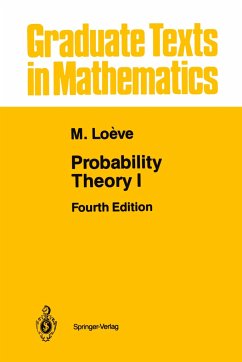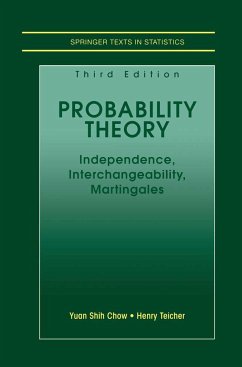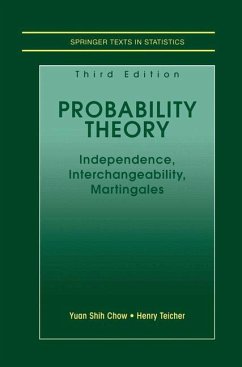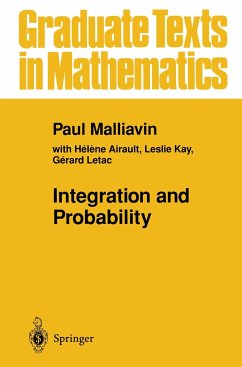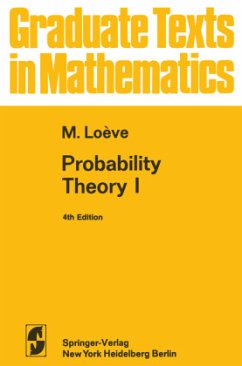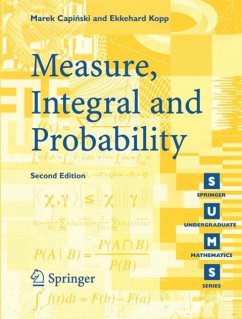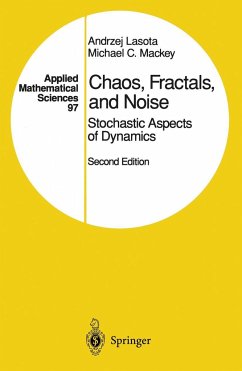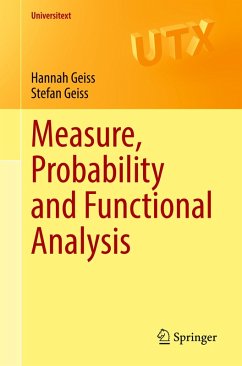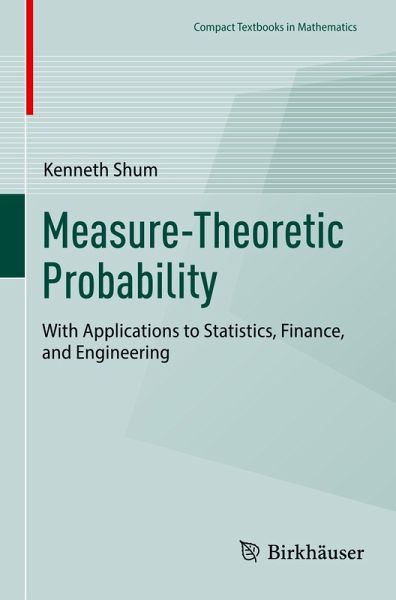
Measure-Theoretic Probability
With Applications to Statistics, Finance, and Engineering

PAYBACK Punkte
19 °P sammeln!
This textbook offers an approachable introduction to measure-theoretic probability, illustrating core concepts with examples from statistics and engineering. The author presents complex concepts in a succinct manner, making otherwise intimidating material approachable to undergraduates who are not necessarily studying mathematics as their major. Throughout, readers will learn how probability serves as the language in a variety of exciting fields. Specific applications covered include the coupon collector's problem, Monte Carlo integration in finance, data compression in information theory, and...
This textbook offers an approachable introduction to measure-theoretic probability, illustrating core concepts with examples from statistics and engineering. The author presents complex concepts in a succinct manner, making otherwise intimidating material approachable to undergraduates who are not necessarily studying mathematics as their major. Throughout, readers will learn how probability serves as the language in a variety of exciting fields. Specific applications covered include the coupon collector's problem, Monte Carlo integration in finance, data compression in information theory, and more.
Measure-Theoretic Probability is ideal for a one-semester course and will best suit undergraduates studying statistics, data science, financial engineering, and economics who want to understand and apply more advanced ideas from probability to their disciplines. As a concise and rigorous introduction to measure-theoretic probability, it is also suitable for self-study.Prerequisites include a basic knowledge of probability and elementary concepts from real analysis.
Measure-Theoretic Probability is ideal for a one-semester course and will best suit undergraduates studying statistics, data science, financial engineering, and economics who want to understand and apply more advanced ideas from probability to their disciplines. As a concise and rigorous introduction to measure-theoretic probability, it is also suitable for self-study.Prerequisites include a basic knowledge of probability and elementary concepts from real analysis.




